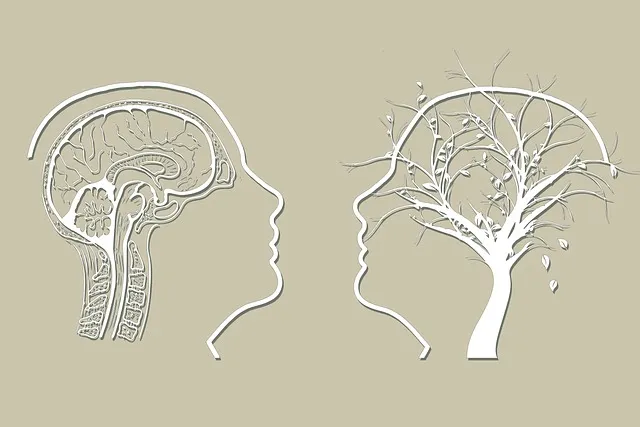Community outreach programs, such as those initiated by Kaiser Permanente in Boulder, play a pivotal role in enhancing mental health services and raising awareness among diverse populations. By offering tailored interventions focusing on self-esteem and social skills training, these programs bridge the gap between healthcare providers and underserved individuals. This innovative approach, designed specifically for Boulder, empowers residents to take charge of their mental well-being, significantly improving the region's mental health landscape. Kaiser Permanente's model incorporates burnout prevention strategies, emotional regulation techniques, and conflict resolution workshops, benefiting both professionals and community members. Meticulous planning, cultural sensitivity, and strategic design are essential for effective outreach, leading to increased mental health awareness and improved outcomes in Boulder.
Community outreach programs play a pivotal role in expanding access to mental health services, especially in diverse communities. This article explores the necessity and benefits of such initiatives, drawing insights from successful models like the Boulder Kaiser Permanente collaboration. We delve into planning strategies, engagement techniques for varied demographics, and methods to measure their impact. Understanding community needs is key to designing effective outreach, ensuring that mental health resources reach those who need them most. Learn from proven approaches to enhance service delivery and improve overall well-being.
- Understanding Community Outreach: A Necessary Approach for Mental Health Services
- The Boulder Kaiser Permanente Model: A Successful Collaboration
- Planning and Designing Effective Mental Health Outreach Programs
- Strategies to Engage and Reach Diverse Communities
- Measuring Impact: Evaluating the Success of Community Outreach Initiatives
Understanding Community Outreach: A Necessary Approach for Mental Health Services

Community outreach programs play a pivotal role in enhancing mental health services, especially in areas like Boulder where Kaiser Permanente operates. Understanding and addressing community needs is crucial for fostering Mental Health Awareness. These initiatives aim to bridge the gap between healthcare providers and individuals who might face barriers to accessing traditional mental health services.
By implementing programs that focus on Self-Esteem Improvement and Social Skills Training, Kaiser Permanente can ensure that their outreach efforts resonate with diverse populations. Such programs not only promote overall well-being but also empower individuals to take charge of their mental health. This approach, tailored to the unique needs of Boulder’s community, can lead to significant improvements in the mental health landscape of the region.
The Boulder Kaiser Permanente Model: A Successful Collaboration

In Boulder, Kaiser Permanente has implemented a remarkable community outreach program that has significantly contributed to improved mental health outcomes. This innovative model showcases successful collaboration between healthcare providers and community organizations. By integrating Burnout Prevention strategies for healthcare workers, the program addresses a crucial aspect often overlooked in mental health initiatives. The approach focuses on fostering Emotional Regulation skills among both healthcare professionals and community members, creating a supportive ecosystem.
Through workshops and training sessions, Conflict Resolution Techniques are taught to enhance communication and understanding within the community. This holistic method not only benefits individuals seeking mental health services but also empowers those delivering them. By reducing Burnout and improving emotional resilience, healthcare providers can offer more sustainable support, leading to better long-term outcomes for Boulder’s mental health landscape.
Planning and Designing Effective Mental Health Outreach Programs

Effective mental health outreach programs require meticulous planning and thoughtful design to address the unique needs of diverse communities in Boulder, Colorado. Organizations like Kaiser Permanente play a pivotal role in fostering Mental Health Awareness by tailoring initiatives that resonate with cultural nuances and local challenges. One key aspect is understanding the community’s specific barriers to seeking support, whether it’s stigma, language differences, or limited access to resources. Incorporating strategies for Conflict Resolution Techniques can help navigate these hurdles, creating safe spaces for individuals to open up about their mental health struggles.
Self-esteem improvement is another critical component that deserves attention in outreach programs. By integrating activities and discussions that promote positive self-image and resilience, communities can build a support system that empowers individuals to take charge of their mental well-being. Engaging local leaders and advocates who embody these values ensures the program’s relevance and effectiveness. Through careful planning and an inclusive approach, Kaiser Permanente and similar organizations in Boulder can significantly contribute to enhancing Mental Health Awareness and overall community well-being.
Strategies to Engage and Reach Diverse Communities

Reaching and engaging diverse communities is a key aspect of successful Boulder Kaiser Permanente mental health initiatives. One effective strategy involves tailoring programs to specific cultural needs and preferences, ensuring accessibility and relevance for each community segment. For instance, organizing Resilience Building workshops in local community centers or places of worship can foster trust and participation among varied demographics.
Leveraging modern communication tools, such as the Mental Wellness Podcast Series Production, allows organizations to connect with individuals who may have limited access to traditional services. This medium can help dispel stigma, offer valuable mental health resources, and encourage open conversations around sensitive topics. By combining these innovative approaches with grassroots Community Outreach Program Implementation, Boulder Kaiser Permanente can significantly enhance its impact on the well-being of diverse community members.
Measuring Impact: Evaluating the Success of Community Outreach Initiatives

Measuring the impact of community outreach programs is crucial to understanding their success and identifying areas for improvement. For initiatives led by organizations like Boulder Kaiser Permanente focused on mental health, evaluation should go beyond simple attendance or satisfaction rates. It involves tracking changes in awareness, attitudes, and behaviors related to mental health within the targeted community. This could include measuring increases in knowledge about available resources, reductions in stigma associated with mental illness, and improved access to care.
Using data-driven methods, such as surveys, focus groups, and community feedback mechanisms, allows for a comprehensive assessment of these initiatives’ effects. By analyzing these metrics, organizations can adapt their outreach strategies, ensuring they effectively address the unique needs and challenges faced by the communities they serve. This iterative process not only enhances program effectiveness but also aligns with broader goals, such as improving mental health outcomes through Risk Management Planning for Mental Health Professionals and Stress Management, as well as fostering Mental Illness Stigma Reduction Efforts.
Community outreach programs, as demonstrated by the successful Boulder Kaiser Permanente model, are pivotal in expanding access to mental health services. By planning strategically, engaging diverse communities, and measuring impact, these initiatives can foster inclusive care that resonates with local needs. Embracing innovative collaborations and evidence-based practices ensures that mental health support reaches those who need it most, ultimately enhancing overall community well-being. The Boulder Kaiser Permanente approach serves as a compelling example of how outreach can revolutionize mental healthcare access and outcomes.






